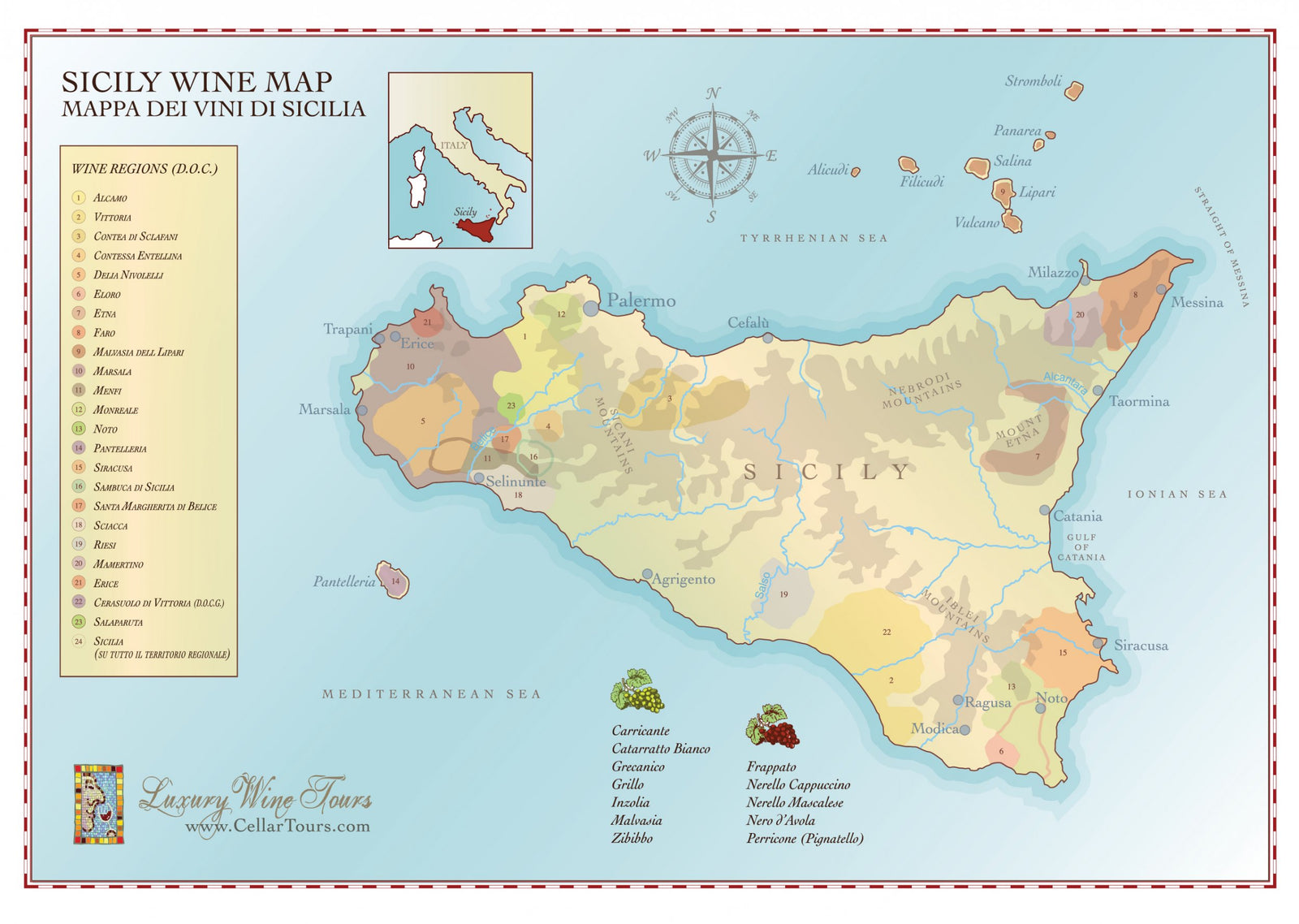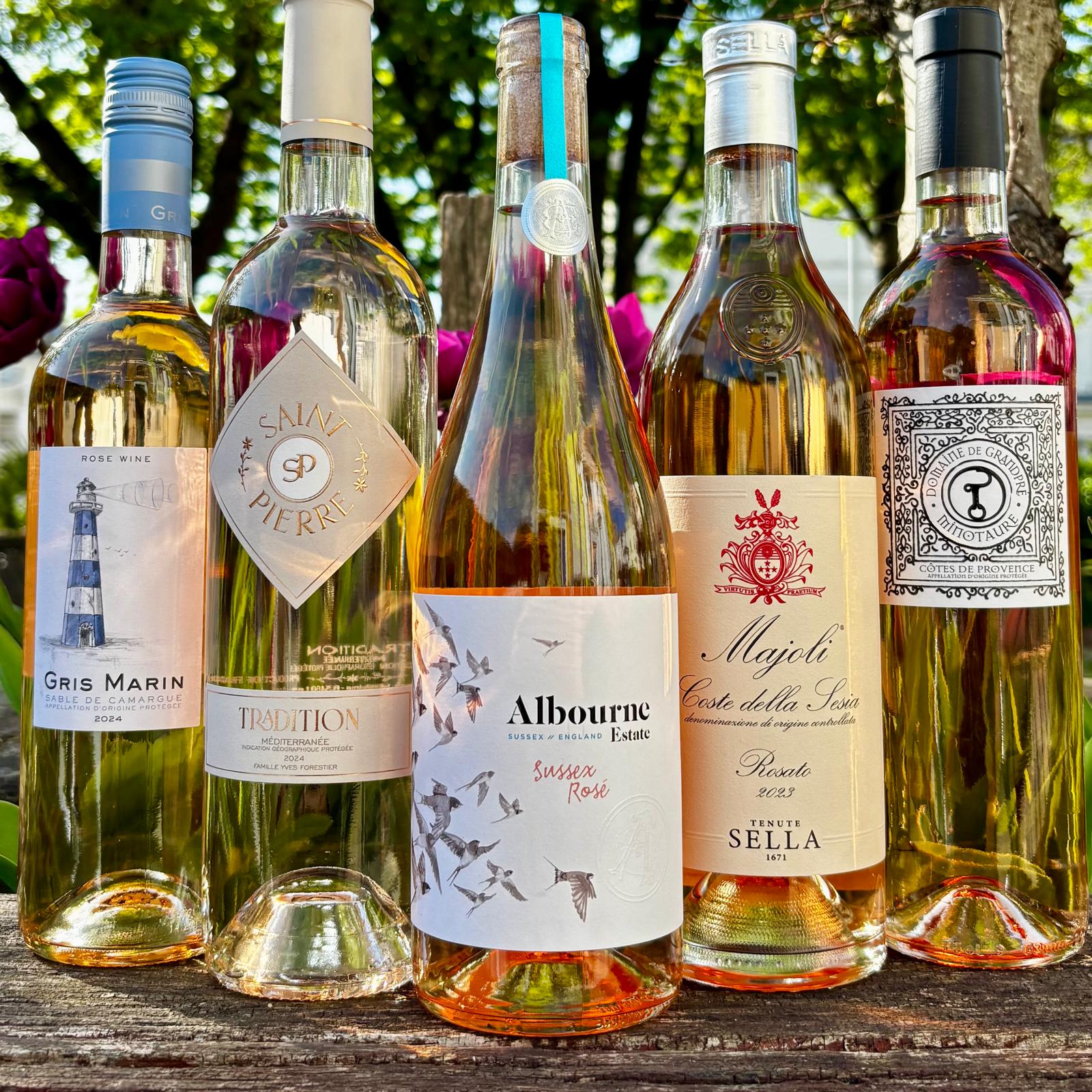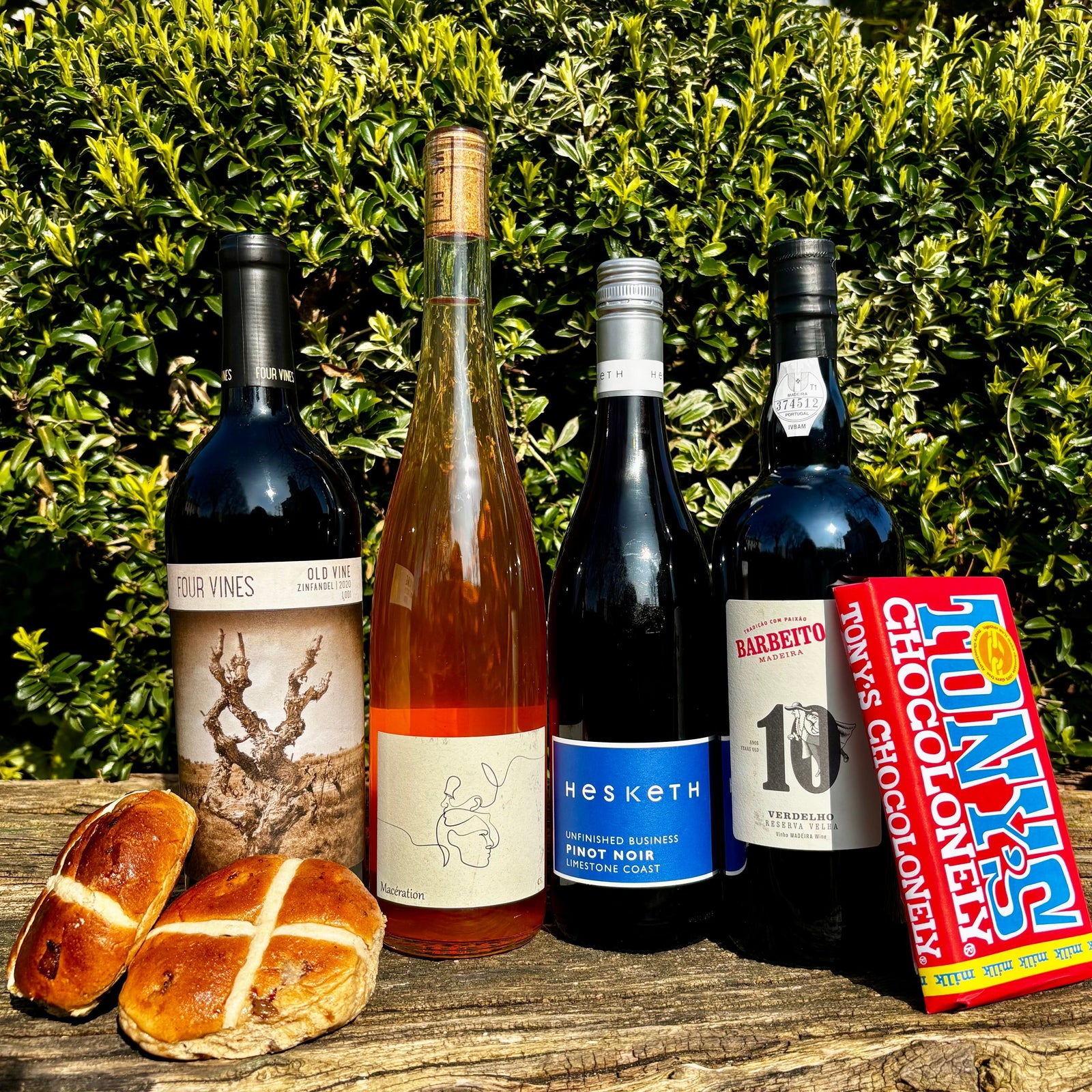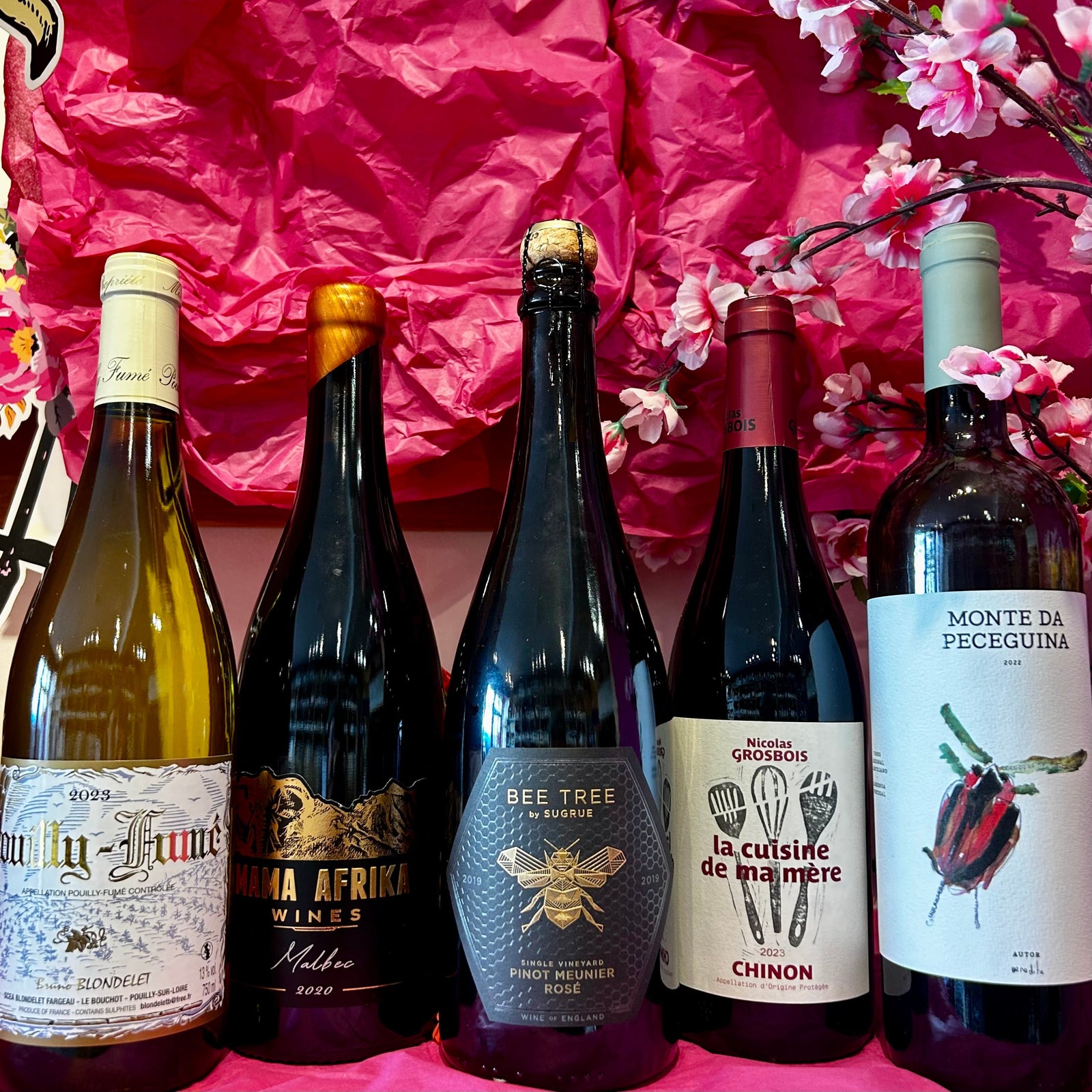
Map reference.
https://www.cellartours.com/
The ancient island of Sicily has a seriously long history of wine production. Its location made it an important trade post for many Mediterranean civilisations. Because these visitors were thirsty for that wonderful liquid we call wine, over the century’s the island has absorbed countless winemaking cultures and influences.
According to Greek mythology it was the god of wine (and madness), Dionysus that first introduced the grapevine to Sicily. Which is a fun story. And whilst many of the varieties we now considered to be 'native' to Sicily were brought by the Phoenicians, archaeological evidence suggests those inhabiting the island have been drinking wine as far back as the 17th century BC!
Today vines cover the island and the region produces more wine than almost all other Italian wine regions (around 800 million litres a year). A reputation is emerging not only for it's very high end, quality driven wines, but also for the seriously good value it offers in the everyday wine category.
Part of what we think makes Sicily so special is the combination of its climate, soil and the unique grape varieties.
Climate
The island has a Mediterranean climate. Put simply this mean hot, summers with very little rainfall and temperate winters. This climate not only promotes a high level of ripeness in the fruit that’s grown there, it also vastly reduces the chances of mould and mildew forming on the grapes, this is especially true for the areas of the island that experience the coastal sea breezes. It’s the combination of all of these factors that make the island particularly well suited to organic viticulture – a style of grape growing practiced throughout the region.
Soil
The rocky, volcanic soils of Sicily are not suited to large scale agriculture of many crops. Grape vines are of course an exception, they love this kind of terrain! Throughout the day the rocks absorb heat which they reradiate throughout the night, aiding in fruit ripening, even at the cooler, high altitudes of Mount Etna. The black, rocky volcanic soils seen in this region are rich in nutrients which the vines love! They are thought to be one of the sources of the finesse and complexity found in the wines.
Grape Varieties
It’s the combination of soil and climate that has meant the region is very well suited to producing large amounts of good quality, everyday wines. Efforts over the past few decades have been made to focus a little less on quantity and instead on producing amazing quality wines out of its unique grapes! We appreciate this a lot, because it means we get to explore good quality wines made from varieties that are not found everywhere.
Whilst there are countless interesting grapes grown in the region, right now we’re going to look at just three:
Nero D’Avola
Probably the most important of the Sicilian varieties - it's certainly the most widely planted. They grape has been grown on the island for centuries and takes it name from a village on the southern coast 'Avola', once and important Mediterranean trading post.
For much of the 20th century the grape was largely used to add colour and intensity to blends destined for the bulk wine market, very rarely appearing on the front label. Today attitudes have drastically changed and it's now thought to be an incredible versatile grape, capable of making several different styles.
Dark, intense and complex wines that are suitable for oak ageing. There are also much juicy, fresher, younger styles. Here's a great example of the latter:
Grillo
This variety was for a long time, famous for its use in the islands signature fortified wine, Marsala. As the popularity of this wine wained, the grape has increasingly been used for still table wines, both in blends and as a single varietal wine. As both public demand for quality, and the islands wine making techniques have improved, so has the popularity of Grillo.
Often likened to Pinot Grigio or Soave it's often a light, fruit forward, easy drinking and 'quintessentially Italian' white wine. Here is an example of such a wine that's a real favourite of our customer - it's full of bright lemon, fruit driven wine with a pretty floral edge:
Nerello Mascalese
By far the islands best regarded grape, the variety is still seen by many as a source of excellent value wines that are often likened to the wines of Burgundy or Barolo. Primarily grown around the slopes of Mount Etna, where the volcanic soils combined with the high altitude (up to 1000m) produce wines of immense character and complexity without the intense ripeness and weight that you find in many other Sicilian reds.
These wines have elegance, vibrancy and a deeply mineral character (thanks to Etna, black soil). Here’s an example of just such a wine. Masseria is an Etna based winery who focuses on Nerello, this wine is full of bright red cherry, dried herbs and cinnamon with an earthy nuance. A seriously good wine:









Leave a comment (all fields required)